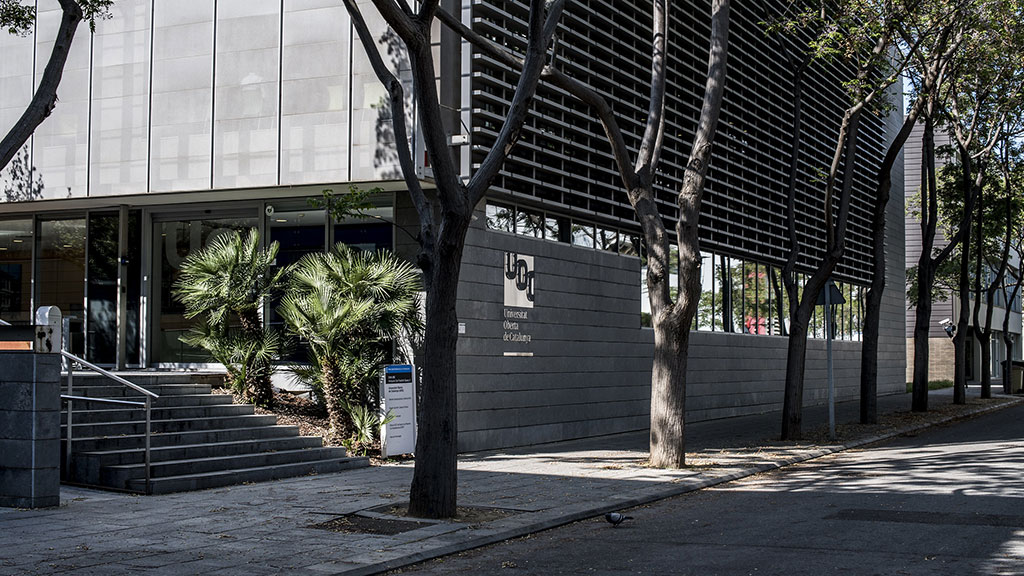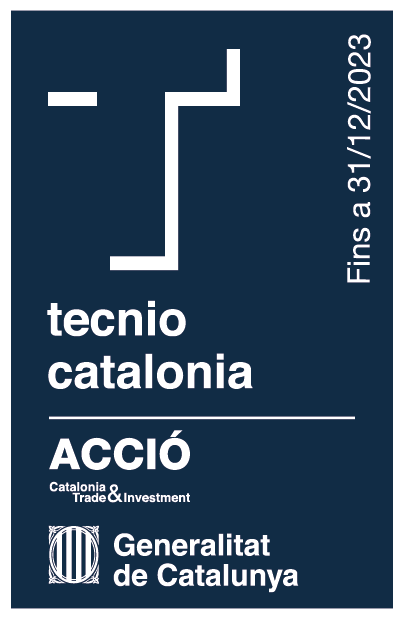The IN3 obtains the TECNIO accreditation, strengthening the societal impact of UOC research
This recognition is used as a benchmark by the business sector when contacting accredited centres to carry out contract research and innovation projectsTECNIO provides proof of the University's ability to carry out distinctive and transferable research and innovation
The Internet Interdisciplinary Institute (IN3), a research centre belonging to the Universitat Oberta de Catalunya (UOC), has been awarded TECNIO accreditation by the Government of Catalonia through its Agency for Business Competitiveness (ACCIÓ). The aim of this recognition is to identify and highlight technology developers in Catalonia's RDI system that have distinctive technological capabilities with potential to transfer them in order to strengthen the business sector and make the Catalan innovation ecosystem attractive to the world. Centres with the accreditation, such as the IN3, can display the TECNIO label to highlight this status. In addition, they are also visible on the ACCIÓ website.
As to the University's research and innovation activities, Marta Aymerich, vice president for Strategic Planning and Research, said that "the UOC aims to be attractive, securing talent and projects; outstanding, publishing and disseminating more and better; and meaningful, carrying out research that has societal impact. TECNIO is an example of this ambition: the recognition of a trajectory and of the ability to carry out research and knowledge transfer in a field in which we are renowned."
The professor and director of the IN3 David Megías also gave his assessment of the significance of the accreditation based on its specific advantages, such as the regular publication of calls for applications open only to accredited centres. These can include, for example, funding calls offering highly prestigious postdoctoral contracts. Furthermore, Megías, who is also the lead researcher of the research group K-riptography and Information Security for Open Networks (KISON), highlighted that "companies that enter into contracts with TECNIO centres for the performance of research projects are eligible for direct grants and tax benefits".
Research with the productive sector
Thanks to these benefits, companies that contact accredited centres to carry out contract research or innovation projects make it easier to ensure that the technologies developed at those centres "are not circumscribed to the academic sphere" but can instead "have a social impact", said Megías. Thanks to this collaboration, research that is largely publicly funded can be given back to society and be of benefit to it, said the director of the IN3.
Accreditation is also very important to researchers, as it "increases the institution's prestige" because the research carried out at the UOC will have greater potential for societal impact. "Research institutions and the productive sector have to exchange knowledge, and initiatives such as the TECNIO label help meet this need," said Megías.
Following the award of accreditation, the IN3's roadmap requires the fulfilment of the commitments made, and this will be done using quality and marketing plans. These two plans must be constantly monitored, and compliance reports must be submitted to ACCIÓ twice a year," the professor explained. The director of the centre explained that the indicators that the IN3 has undertaken to achieve "are demanding, and we'll have to work hard to keep the accreditation". However, the benefits of the accreditation "will more than make up for this hard work, and we're sure that its benefits will have a positive impact not just on the IN3, but on the UOC in general", said the director of the IN3.
A strategic commitment to research and innovation
Marta Aymerich noted that "this accreditation certifies that the IN3 and, by extension, the rest of the UOC, is capable of carrying out distinctive and transferable research and innovation in the form of technology and knowledge to help make high added value productive sectors more competitive." In the vice president's opinion, this recognition is the result "of an ambitious ongoing research strategy and plays a serious role in the University's new Strategic Plan 2022-2025." Talking about the University's new strategic roadmap, Aymerich explained that this includes "a firm commitment to trandisciplinarity, addressing the governance of the research and innovation ecosystem with new locations and focusing on reforming the evaluation of research, as well as research partnerships and increasing research, in line with other European universities and the European Commission."
About TECNIO
The TECNIO label enables accredited centres to, among other things, receive information about support tools and activities, technology transfer training programmes, tutoring and advice on international cooperation and innovation, and information on specific grants and programmes managed by ACCIÓ. Furthermore, institutions with accreditation can also take part in networking events and receive support for the marketing of technological solutions, as well as accessing innovation and transfer policy instruments.

The IN3 is a TECNIO accredited agent in the technology developers or facilitators category. TECNIO is the label awarded by the Government of Catalonia through its Agency for Business Competitiveness (ACCIÓ) to identify the most innovative technology, the parties that can provide it and the facilitators involved in the technology and knowledge transfer process.
UOC R&I
The UOC's research and innovation (R&I) is helping overcome pressing challenges faced by global societies in the 21st century, by studying interactions between technology and human & social sciences with a specific focus on the network society, e-learning and e-health.
Over 500 researchers and 51 research groups work among the University's seven faculties and two research centres: the Internet Interdisciplinary Institute (IN3) and the eHealth Center (eHC).
The University also cultivates online learning innovations at its eLearning Innovation Center (eLinC), as well as UOC community entrepreneurship and knowledge transfer via the Hubbik platform.
Experts UOC
Press contact
-
Editorial department
